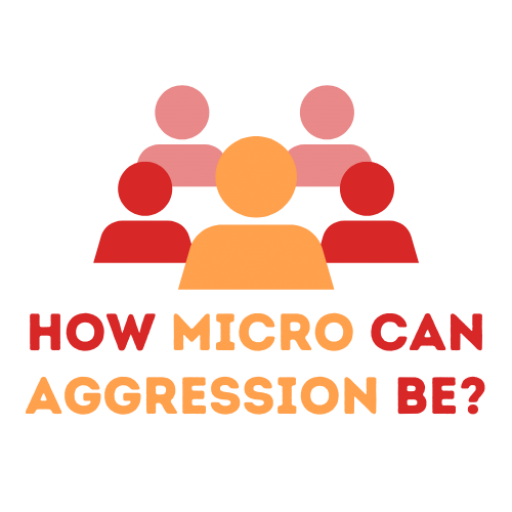Topic 3 Psychological Dilemmas of Micro-aggressions
According to Sue et al. (2007), there are some psychological dilemmas regarding micro-aggressions. Firstly, the clash of racial realities which implies that the racial realities of people differ. Black Americans, for example, perceive racism as a continuing reality, while White Americans minimize its impact.
In addition, when marginalized groups attempt to discuss the harmful impacts of micro-aggressions, they often encounter the psychological dilemma of perception of minimal harm from micro-aggressions, because micro-aggression incidents may appear innocent.
Another major psychological dilemma is regarding the invisibility of unintentional biases. Individuals may have unconscious and biased attitudes and beliefs directed at specific groups which are expressed in unintentionally biased behaviour. As a result, it is difficult to make the perpetrators recognize that their actions may have been influenced by prejudice and unconscious attitudes and beliefs.
Finally, there is the catch-22 of responding to micro-aggressions dilemma. A micro-aggression incident can raise many questions for the recipient. Micro-aggressions result in attributional ambiguity, which drains psychological energy in trying to identify the truth (the incident was intentional or not?, it actually occurred?), protect oneself and decide how to respond. This takes away the attention from the surrounding environment, and can harm victims’ productivity, their abilities to solve problems, and their ability to learn.
When “double messages” are sent, attribution ambiguity causes significant energy depletion for marginalized populations. It can occur when the sender’s actions affect only people from marginalized groups but can be considered rational and unbiased from their perspective.
Additionally, the recipient may experience complex effects if they decide to respond to potential micro-aggression. Generally, people do nothing in response to micro-aggressions because of the following reasons:
- Attributional ambiguity — inability to determine whether a micro-aggression has occurred.
- Response indecision — not knowing the best way or how to respond.
- Time-limited responding — the incident is over before a response can be made.
- Denying experiential reality — engaging in self-deception by believing it did not happen: Self-deception may occur due to an interdependent or close relationship with the offender or from a fear of acknowledging what the micro-aggression may say about them.
- Impotency of actions — “It won’ t do any good, anyway.”: An assumption that one’s actions will have a minimal positive impact on the situation. There may be a feeling of powerlessness, helplessness, and hopelessness.
- Fearing the consequences — interpersonal power differentials determine degree of threat: The individual evaluates the benefits of action versus the threats (negative personal effects). Marginalized groups are more likely to fear the consequences of reacting to micro-aggressions.
Considering the above points, marginalized individuals are justified in refusing to respond to micro-aggressions. However, this decision may result harm, including loss of integrity, self-esteem, and anger. In addition, taking action may also carry risks that lead directly into the catch-22. Stereotypes may be triggered when confronting the perpetrator, such as describing African Americans, for example, as angry, oversensitive, and paranoid. That means that as long as micro-aggressions remain invisible to the aggressor, marginalized individuals are at risk whether they take action or not!
